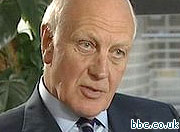A free speech reform to the public order law has cleared Parliament and achieved royal assent today.
The word “insulting” has been deleted from Section 5 of the Public Order Act, still leaving police with power to deal with “abusive” and “threatening” conduct.
Supporters of the reform say “insulting” was wide open to misinterpretation, and it had led to many unjust incidents of police interfering in free speech.
Arrests
One protestor had been arrested for calling Scientology a “cult”, someone else had been arrested for saying “woof” to a dog, another for calling a police horse “gay”.
Several Christians had been arrested for peaceful and lawful street preaching, and one Christian couple were put on trial for criticising Islam.
The Government had initially resisted reform of the law, but gave way in January after the Lords voted for it and the Director of Public Prosecutions said he had no objection.
Cleared
However, the reform was put in jeopardy because it was part of a Bill that got caught up by political wrangling over press regulation.
That issue has now been resolved, meaning the Bill has cleared Parliament today.
The campaign to change the law was spearheaded by the Reform Section 5 (RS5) group, using the slogan “feel free to insult me!”
Unusual
Comedy actor Rowan Atkinson spoke in support of the campaign at a meeting in Parliament.
The RS5 group was led by The Christian Institute’s Deputy Director (Public Affairs), Simon Calvert, and supported by the National Secular Society, the Peter Tatchell Foundation and others.
Mr Calvert said: “It was an unusual alliance of groups, but we all agreed that Section 5 needed reforming for the sake of free speech.
Thanks
“There were many turning points in the campaign, but I’d like to thank Christian Institute supporters who wrote in their droves to MPs, asking them to back this change.
“I’d also like to thank MPs like Edward Leigh and David Davis who took a high profile stand on this important issue.
“In particular I’d like to thank Lord Dear who led the successful effort to amend the law in the House of Lords. As a former chief constable, his leadership on this issue was absolutely vital.
“I’d like now to work constructively with police forces, helping them to understand the way the law has been reformed and the implications for free speech.”

